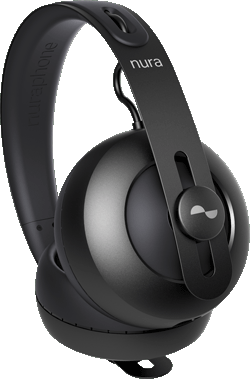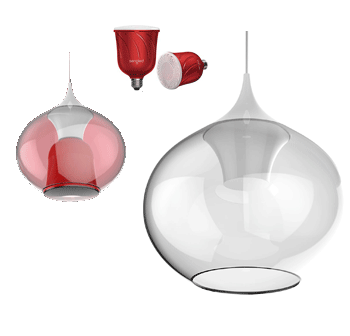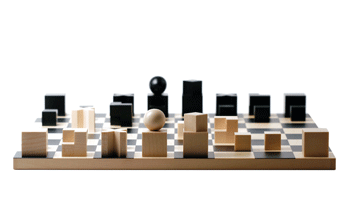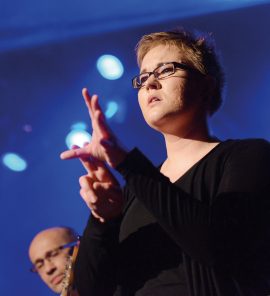Laura M. Schwengber is a sign language interpreter. She doesn‘t just translate words, but also sounds. In an interview, the 28-year-old explains how this works and how she also makes it possible for deaf people to experience rock music or classical music.
Music is more than just sound waves
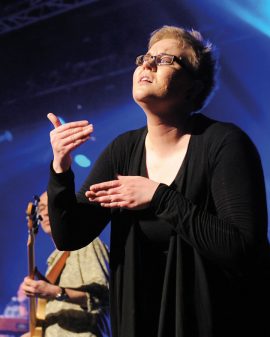 Laura Schwengber on stage.
Laura Schwengber on stage.How did you come up with the idea of bringing music to deaf people in this way?
Laura M. Schwengber: Seven years ago, there was a request from NDR (Norddeutscher Rundfunk: North German Radio) about whether I could interpret music videos for an Internet project on World Deaf Day. At first, I was skeptical as to whether this could work, but it is incredible how often the films were actually clicked on. It was a huge success! Then out of this came the idea, to try out the whole thing live on stage.
You can still imagine what it means to translate lyrics into sign language. But how do you translate a melody?
Laura M. Schwengber: It has a lot to do with emotions. With my gestures, I also pass on what the music arouses in me. Besides, I can show with my hands whether a tone is high or low, and I can describe the rhythm of the music. Because music is more than pure sound waves. This means that you can experience music in other ways than through hearing.
Can you give an example?
Laura M. Schwengber: That is difficult to say. It is a music experience. As a hearing person, you cannot imagine this so easily. Indeed, we all also hear things in completely different ways.
Is that comparable to a „real“ listening experience?
Laura M. Schwengber: Schwer zu sagen. Es ist ein Musik-Erlebnis. Als Hörender kann man sich das nicht so leicht vorstellen. Wir hören ja auch alle auf völlig unterschiedliche Art und Weise.
